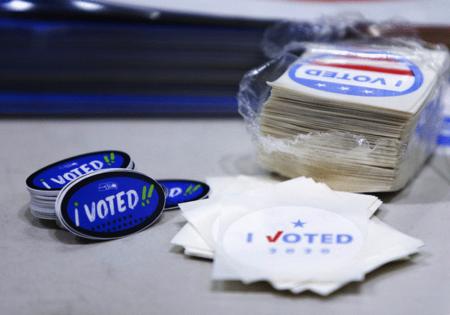Commentary: 15 years after Citizens United, Seattle can show the way forward
Published in Op Eds
Jan. 21 marks the 15th anniversary of the Supreme Court’s Citizens United ruling, a decision that opened the floodgates for unlimited corporate spending in elections. Since that ruling, super PACs and outside spending have skyrocketed and the voices of everyday voters have been drowned out by wealthy donors and corporate interests. The impact of Citizens United is clear: The political system is increasingly controlled by the rich, while ordinary voters are left behind.
According to recent data from OpenSecrets, the numbers are striking. In 2008, outside spending in U.S. elections totaled $574 million. By 2012, that number had more than doubled to nearly $1.3 billion, and by 2024, outside spending exceeded $4.5 billion, much of it spent by super PACs and outside groups. In 2008, the top 100 individual donors contributed just $80.9 million, a small fraction (1.5%) of the overall $5.3 billion spent on federal elections. By 2024, that share had ballooned, with the top 10 donors alone contributing at least $42.3 million each—led by Elon Musk’s record-breaking $280 million.
While the rest of the country struggles to rein in the influence of big money, Seattle has charted a different course. In response to Citizens United, we introduced the Democracy Voucher Program (DVP) in 2017—an innovative effort to empower everyday voters and reduce the dominance of big-money donors. The program provides all Seattle residents with four $25 vouchers, which they can donate to the candidates of their choice. It’s a tool designed to give Seattle’s voters a direct role in funding local elections, ensuring that political power remains in the hands of the people, not corporate PACs or the wealthiest individuals.
The results have been encouraging. Before the DVP, only 1.3% of Seattle residents contributed to City Council races. In 2021, that number jumped to 7.6%, with over 48,000 residents participating. The program has been particularly effective in engaging first-time voters, with 88% of participants in 2017 having never donated to a local election before. What’s more, the DVP has democratized the donor pool, making it more reflective of Seattle’s diverse electorate. People of color and low-income residents, who historically have been underrepresented in political donations, are now contributing at much higher rates.
The DVP has also dramatically reduced the influence of out-of-state and corporate donors. Since its introduction, donations to Seattle City Council races from out-of-state sources have decreased by over 80%. This is a powerful reminder that it is possible to reduce the impact of big money in elections while empowering local voters to make their voices heard.
The DVP has also led to greater diversity in Seattle’s candidate pool. Nearly half of first-time candidates in recent years have cited the Democracy Voucher Program as the reason they decided to run. By removing financial barriers, the program has opened up the political arena to candidates who might not have otherwise had the resources to run. Seattle’s elections are now more competitive, with a greater range of perspectives and backgrounds.
However, as we look toward 2025, Seattle faces a critical challenge: The property tax levy that funds the Democracy Voucher Program is set to expire. Without renewal, we risk losing a vital tool in the fight against the influence of big money in local elections.
As the rest of the nation struggles to reverse the damage done by Citizens United, Seattle has the chance to continue leading the way. The Democracy Voucher Program has proven that it is possible to reduce the influence of big donors and create a more inclusive and equitable democracy. But to maintain that momentum, we must renew the levy that funds the program in 2025.
The 15th anniversary of Citizens United serves as a reminder of how far we’ve come in the wrong direction. But it’s also an opportunity for Seattle to show the country that there’s another way—one where ordinary voters, not wealthy special interests, control the political process. Let’s renew the Democracy Voucher Program and continue our leadership in the fight for a more democratic, people-powered future.
____
Cindy Black is the Executive Director of Fix Democracy First. She is active with several state and national coalitions, addressing voting access, money in elections, alternative voting systems, and increasing civic participation.
____
©2025 The Fulcrum. Visit at thefulcrum.us. Distributed by Tribune Content Agency, LLC.




























































Comments